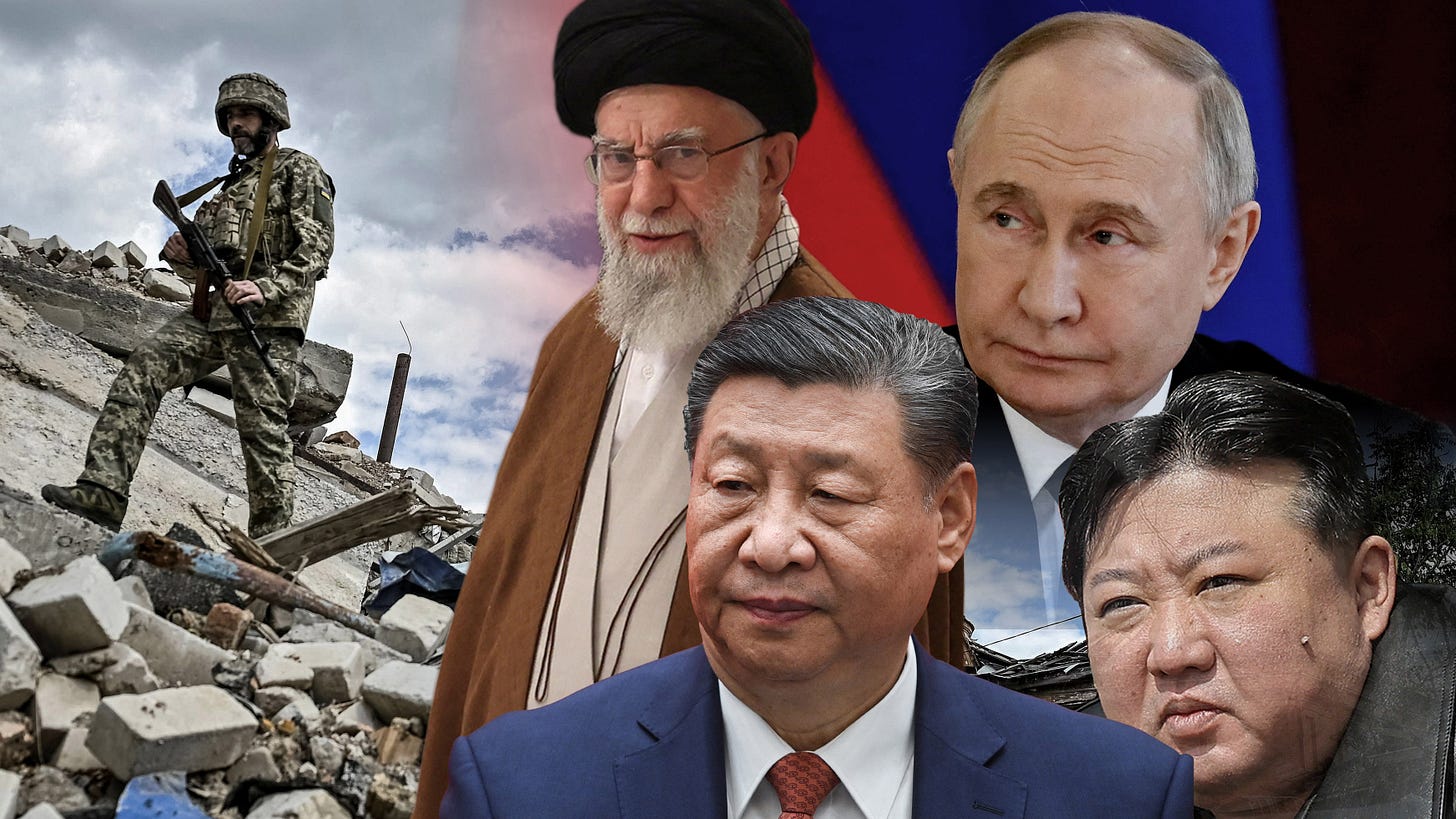As we consider the enormous challenges facing the next American president and the related issues that our closest allies will also have to face after November 5, I thought it would be helpful to benefit from the insights of some of our major international relations experts. In addition, I have recommended several resources that are worthy of further study and will help each of us understand the difficult choices that lie ahead for us and White House staff and Congressional leadership.
Basic Insights:
“In both Ukraine and the Middle East, what has become clear is that the relatively narrow scope that defined war during the post-9/11 era has dramatically widened. An era of limited war has ended. Indeed, what the world is witnessing today is akin to what theorists in the past have called ‘total war’ . . . Today’s global security environment is the most complex since the end of the Cold War . . . The destruction and loss of life in Ukraine and the Middle East have been heartbreaking. In addition to helping its allies prevail in those conflicts and fostering peace, Washington should get ready to fight the kind of total war that has ripped apart those places – which is the best way to avoid one.” (Mara Karlin, “The Return of Total War: Understanding – and Preparing for – a New Era of Comprehensive Conflict” (Foreign Affairs, October 22, 2024).
“The threats the United States faces are the most serious and most challenging the nation has encountered since 1945 and include the potential for near-term major war. The United States last fought a global conflict during World War II, which ended nearly 80 years ago, the nation last prepared for such a fight during the Cold War, which ended 35 years ago. It is not prepared today.” (Commission on the National Defense Strategy – Executive Summary, August 2024).
“Four ambitious, revisionist states at the heart of Eurasia – Russia, China, Iran and North Korea – are coordinating ever more closely to challenge, if not shatter, the prevailing international security order known as Pax Americana. . . Three are nuclear-armed and the fourth, Iran, is working to join the club. The day is long past when these regimes posed isolated, discrete threats to Western interests.” (Nicholas Eberstadt, “North Korean troops in Russia bring a ‘World-Island’ conflict a step closer” (Washington Post, October 27, 2024).
“[Ukrainian officials] see the pain that long-range attacks inflict as a game-changer that could force President Vladimir Putin into negotiating an acceptable peace. . . Ukraine’s own long-range weapons have steadily increased in reach and power. . . This development is a major shift from the first year of the war. . . The growing belief in Kyiv and among many of its backers is that the war in Ukraine cannot be won just in Ukraine – and that bringing it to an end requires inflicting much more damage to Russia’s economy and military infrastructure.” (Yaroslav Trofimov, “Ukraine is Striking Deeper Inside Russia – and Reshaping the War” (Wall Street Journal, October 26, 2024).
“Though the global liberal order has many faults and problems, it has proved superior to all alternatives. The liberal world of the 21st century is more prosperous, healthy and peaceful than ever before. . . For the first time in human history, starvation kills fewer people than obesity; plagues kill fewer people than old age; and violence kills fewer people than accidents. . . Nevertheless, people are losing faith in the liberal order. Governments throughout the world are increasingly restricting immigration, imposing high tariffs, censoring foreign ideas and turning their countries into walled fortresses. . .Without some universal values and global organizations, rival nations cannot agree on any common rules. . . No modern economy can survive without a global trade network. . . And, like it or not, humankind today, faces three common problems that make a mockery of all national borders, and that can be solved only through global cooperation. These are nuclear war, climate change and technological disruption.” (Yuval Noah Harari, “Moving Beyond Nationalism” (2019).
Helpful Resources:
Adrian Karatnycky, “Battleground Ukraine: From Independence to the War with Russia” (Yale University Press, 2024).
Condoleezza Rice, “The Perils of Isolationism: The World Still Needs America – and America Needs the World,” (Foreign Affairs, September – October 2024).
Michael Kimmage, Collisions: The Origins of the War in Ukraine and the New Global Instability (Oxford University Press, 2024).
Dr. John A. Bernbaum
Educator & Writer
Grand Rapids, Michigan





